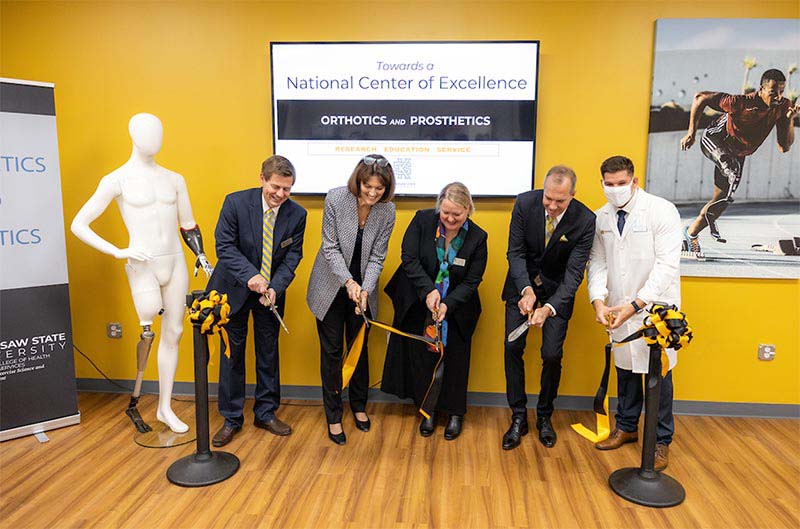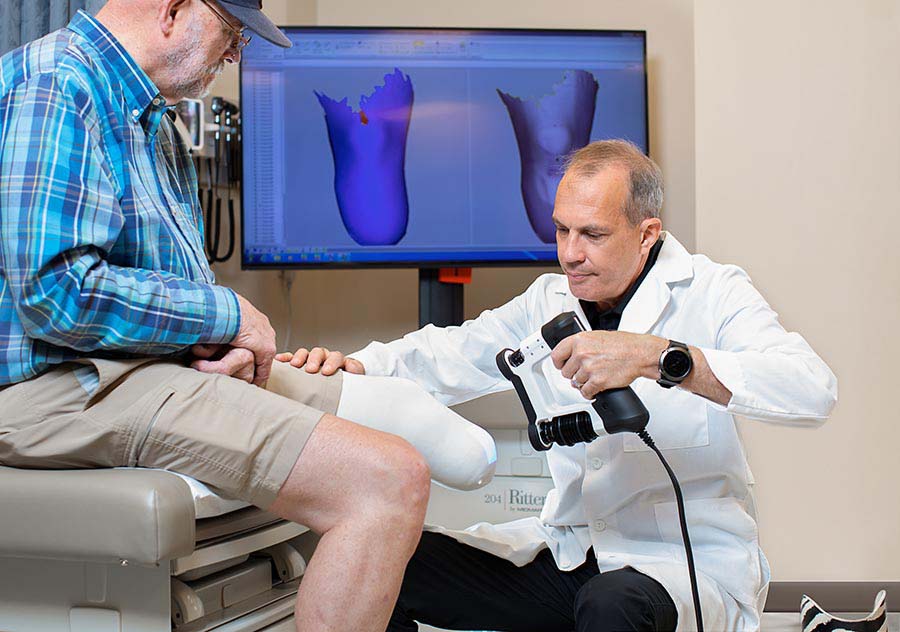

KENNESAW, Ga. | Oct 28, 2021
A family medicine resident, David Lee felt that he didn’t have the passion for his career that he had hoped. While pondering a career change, he remembered how much he loved helping his father build and fix things and wanted to combine that with his desire to help others. Ultimately, it is what led him to enroll in Kennesaw State University’s Master of Science in Prosthetics and Orthotics program.
“I was in denial about working with my hands because I thought I'd never be allowed to use these skills professionally,” he said. “With prosthetics and orthotics, that's what you do. The tool you give to people is their orthosis or their prosthesis. It's a perfect marriage, and this is the right place to learn.”

The MSPO program officially opened its doors at Kennesaw State this fall with an initial class of 24 students, many of them seeking something new in their lives in a career with high projected growth. The U.S. Bureau of Labor Statistics predicts 18 percent job growth between now and 2030, with a median salary of about $70,000 for practitioners. The program is one of just 13 graduate programs of its type in the U.S.
Housed within the Wellstar College of Health and Human Services, the two-year program includes clinical, technical and research components. In the clinical component, students learn to assess the needs of each patient and participate in care through clinical rotations at off-campus health facilities. In the technical component, students learn how to build prostheses and orthoses. They also gain research experience in the program’s lab.
“We’ve got a good, interesting mix of students,” said Program Director Geza Kogler, who is also a professor of prosthetics and orthotics. “Some of them have backgrounds in medicine or engineering, others have degrees in exercise science and kinesiology, and we have people who are rediscovering themselves and making a career change.”
Kogler has spent the past year-and-a-half developing the curriculum, planning and building out the instructional space, and recruiting the initial class of students. Kogler also hired Clinical Assistant Professor Beth Rickerson to share the teaching load and said he’d like to hire two more faculty members and a staffer before the number of students doubles next fall with the second group of 24 students.

“There's not going to be a problem with students finding jobs at all, and the need is there,” Kogler said. “We built the program to be the go-to place for not only research, but also training these students for real-world jobs in prosthetics and orthotics.”
The research aspect drew Adesua Ojeifoh to the MSPO program. After graduating in chemical engineering from Howard University in 2013, she spent several years helping make medical devices, but wanted a more hands-on career. She enrolled in Kennesaw State’s MSPO program because of the capstone research project requirement, which combines theoretical and practical applications.
“Prosthetics and orthotics is a field where there is still a lot to be discovered, and by including that research aspect, it shows that Dr. Kogler really believes in the expansion of the field,” Ojeifoh said. “This program is really investing in the goal of producing certified prosthetists and orthotists who will contribute to the field’s base of knowledge. That research helps me tie my engineering background into prosthetics and orthotics.”
– Dave Shelles
A leader in innovative teaching and learning, Kennesaw State University offers undergraduate, graduate, and doctoral degrees to its more than 51,000 students. Kennesaw State is a member of the University System of Georgia with 11 academic colleges. The university's vibrant campus culture, diverse population, strong global ties, and entrepreneurial spirit draw students from throughout the country and the world. Kennesaw State is a Carnegie-designated doctoral research institution (R2), placing it among an elite group of only 8 percent of U.S. colleges and universities with an R1 or R2 status. For more information, visit kennesaw.edu.